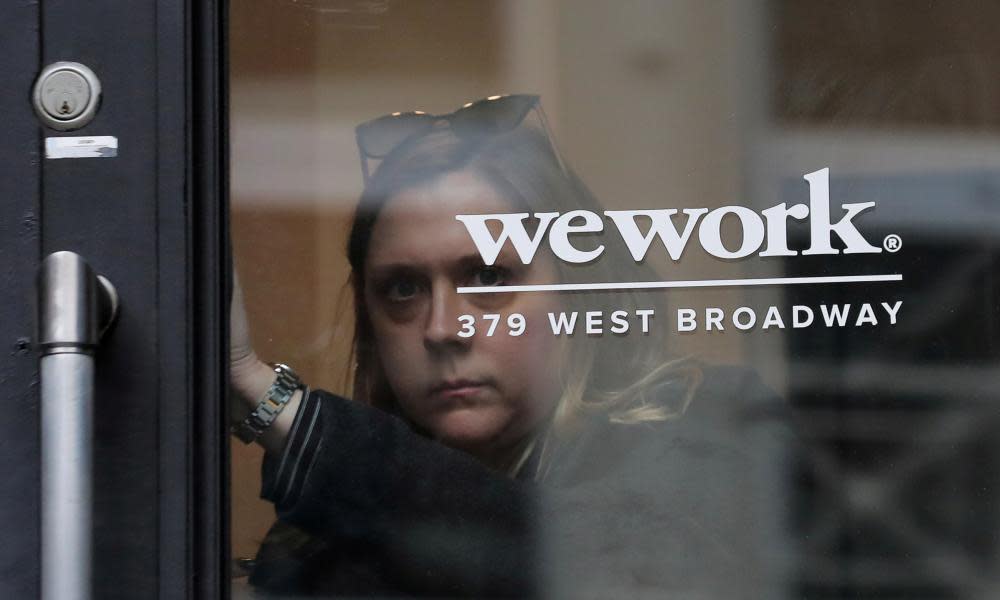WeWork delays $20bn IPO after struggling to interest investors

WeWork, the US office-sharing company, has postponed its stock market flotation after receiving a lukewarm response from investors.
WeWork’s parent, the We Company, had planned to launch an investor roadshow this week to drum up interest in its $20bn (£16bn) share sale, slashed from an initial valuation of $47bn. It hoped to price and list its shares next week, but has put the plans on ice amid operating losses and corporate governance issues.
The We Company said it still aimed to complete the flotation before the end of the year.
Related: 'A giant question mark': can WeWork's Adam Neumann reassure investors?
“The We Company is looking forward to our upcoming IPO [initial public offering], which we expect to be completed by the end of the year. We want to thank all of our employees, members and partners for their ongoing commitment,” the firm said in a brief statement.
The company has been under pressure to push ahead with the flotation to secure funding for its operations. We Company secured a $6bn credit line from banks last month but can only access this if WeWork floats before the end of the year and raises at least $3bn.
We Company reportedly realised on Monday that even with the support of WeWork’s biggest backer, Softbank, the IPO would have raised just more than $2bn, short of this target.
Softbank, the Japanese telecoms and technology group, had urged the company to delay the float, after concerns mounted over big operating losses, pricey lease agreements and executive payouts. A recently released prospectus showed the company has lost about $3bn over the past three years.
Related: Floating or falling? Tech companies that made stock market debuts in 2019
WeWork’s IPO underwriters at JPMorgan Chase and Goldman Sachs have been testing investor appetite for shares with a valuation between $15bn and $20bn. The valuation could be as low as $10bn, according to reports.
John Colley, associate dean of Warwick Business School and an expert on IPOs, said: “Following the recent collapse of Uber and Lyft shares after their initial price offerings, potential investors in WeWork will have some valid questions. How much is it really worth behind the slick marketing? And will it be successful in the long run?”
He noted that the company is a long way from becoming profitable, and lost $1.9bn after making sales of $1.8bn last year. It has been losing $2 for every $1 of revenue it generates.
“It is also relatively easy for new competitors to enter the market, perhaps in less costly parts of the city and because WeWork offers short-term contracts, it is easy for tenants to move elsewhere if a better deal comes along. There are no strong reasons to be loyal to WeWork,” Colley said.
“WeWork is highly subsidised to attract its customers. This means the company will probably have to raise prices in the future to make money, particularly when investors want a return. Any collapse in demand will see them struggle to pay their landlords, particularly during an economic downturn or recession.”
There are also concerns about the firm’s management and corporate governance standards. WeWork’s CEO and co-founder, Adam Neumann, has taken $700m out of the company before the IPO. He also owns properties that WeWork rents, a potential conflict of interest.
WeWork has been expanding rapidly and had 527,000 members at the end of June, up more than 90% from the year before. It is in 528 locations, up from 485 at the end of the first quarter of 2019, and said it planned to open 169 new outlets.

 Yahoo News
Yahoo News 
